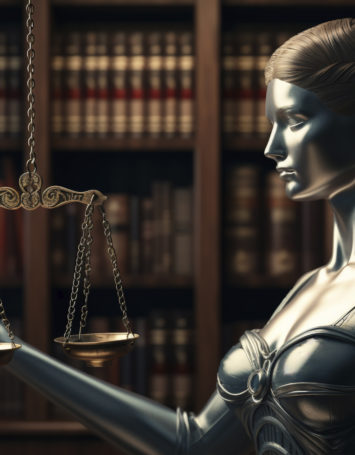Written by Haim Ravia and Dotan Hammer
The Courts and Tribunals Judiciary in England and Wales has issued “Guidance for Responsible Use of AI in Courts and Tribunals”, to assist judicial office holders in effectively understanding and implementing Artificial Intelligence (AI) in their job functions. This document provides insight into the practical application of AI in the legal field, highlighting both potential risks and challenges as well as the substantial benefits, offering a comprehensive view of this advanced technology.
The main principles outlined in this document include:
- Understanding AI and Its Limitations. AI chatbots may produce text based on training that is not always accurate. These tools are helpful for quick reference but not for in-depth research, as their responses can vary and might be biased or incomplete. Large Language Models (LLMs) often draw from sources skewed towards U.S. law. Therefore, judges must verify the accuracy of information from AI tools, being mindful of the risks of incorrect or misleading legal information and potential biases in AI’s training data.
- Confidentiality and Privacy. Judges are strongly advised against entering any private or confidential information into public AI systems to prevent unintended public disclosure. The Guidance recommends disabling chat histories in AI chatbots where possible and exercising caution regarding AI platform permissions on smartphones.
- Security Practices. The guidance advises judges to use official work devices and email addresses for AI interactions and to opt for paid AI subscriptions, which typically offer enhanced security features.
- Judicial Responsibility and Oversight. Judges are responsible for any content produced under their name. They should ensure that clerks, assistants, or staff using AI tools in their work adhere to appropriate guidelines and effectively manage associated risks.
- Awareness of AI-Generated Content. Judges should remain vigilant about the increasing use of AI in creating fake materials, such as deepfakes, and understand the challenges posed by these technologies.
Click here to read the Guidance for Responsible Use of AI in Courts and Tribunals.



